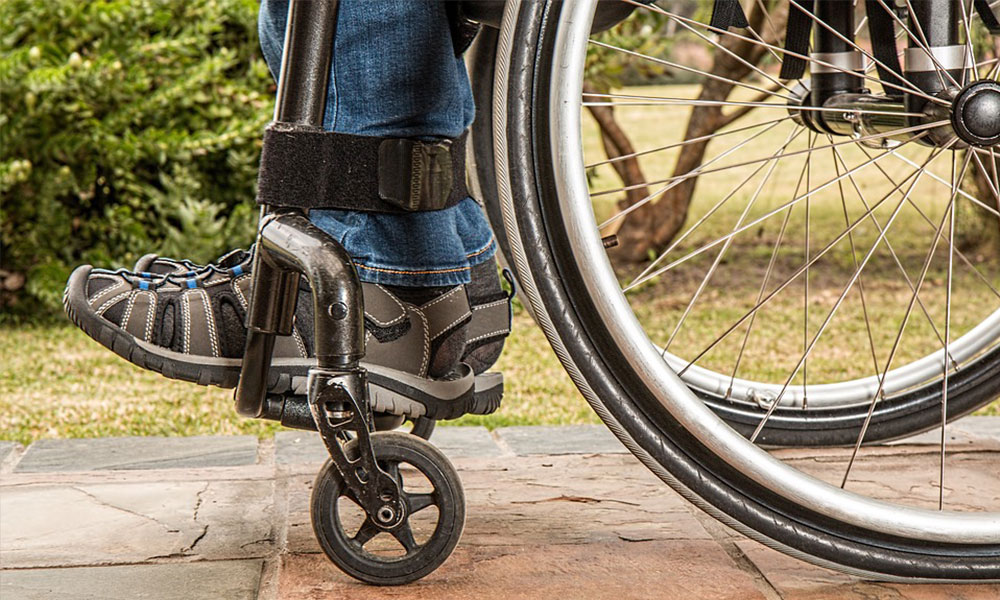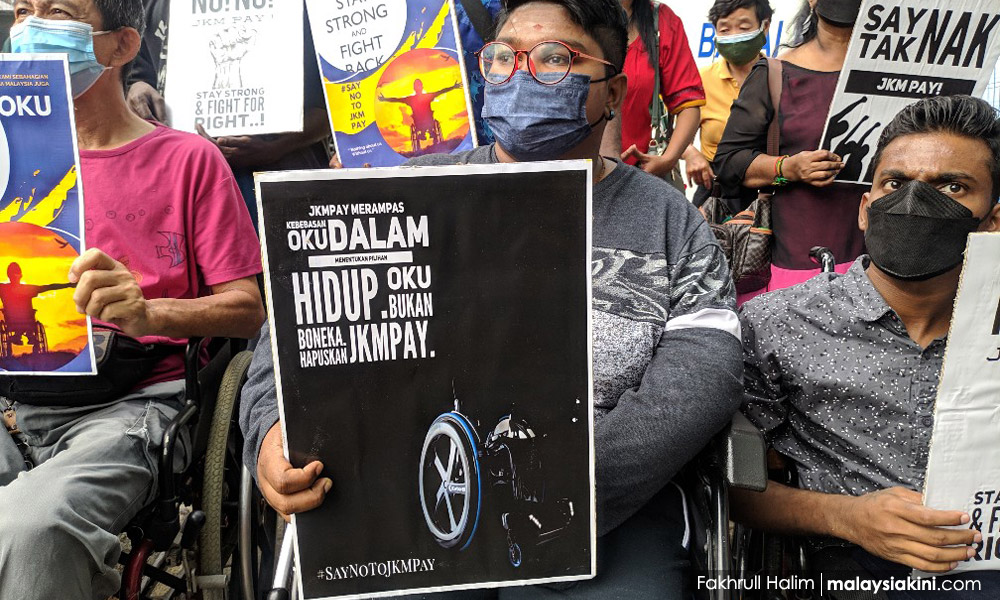Disability rights groups have lambasted Women, Family, and Community Development Minister Rina Harun for her numerous claims over the Social Welfare Department's (JKM) cashless assistance programme.
Among the claims included Rina telling the Dewan Rakyat that the department had consulted recipients, including persons with disabilities, about the programme.
Malaysian Independent Living Association for the Disabled (Milad) vice-president Noor Muha Aziz declared at an online press conference yesterday: "A consultation is the first step before any project or programme is implemented.
"A briefing is the explanation of a project that has already gone through the process of consultation and discussion.
"The engagement session that was previously organised by the Women’s Ministry was very disappointing. The minister and deputy minister were also not present.
"The JKMPay briefings were just part of an agenda, and the question and answer questions were incredibly short that some of our questions about JKMPay went unanswered.
"It is very clear that no consultation was carried out."
Earlier that day, Rina defended the scheme during question time in the Dewan Rakyat, insisting that JKMPay was merely a pilot project limited to several states and had room for improvement.
The states the project was implemented in February 2021 were Kedah, Perlis, Malacca, Terengganu, Kelantan and Selangor.
Rina said it was only targeted at newly approved aid recipients - leaving existing aid recipients unaffected - and that the ministry had conducted a study in October 2021 involving 1,066 participants in the scheme.
Among those, Rina added, 76 percent agreed that cashless was easy, 80 percent said cashless was safer compared to cash, 80 percent said they were able to manage their expenditure better compared, and 73 percent were satisfied with the network of shops in their areas.
'Misusing' aid money
However, disability rights groups refuted this, claiming that the study was conducted unfairly as new aid recipients have only been privy to one scheme - JKMPay - and not the previous one providing aid recipients 100 percent of their cash assistance.
"It is like conducting a study to see if people like coffee or tea, but you give them coffee only, and if you don't like it, then you won't have anything to drink since there are no alternatives.
"If you want them to compare, they need to see both sides.
"Right now, they've never had a chance to get the full amount but rather this 50-50 scheme where it splits the RM450 between the card and cash," Milad president Sia Siew Chin said.

Sia added that it was unfair for the minister to prevent the disabled community from "misusing" the money from buying cigarettes and alcohol.
Rina had said that JKMPay aimed to prevent "misuse" of aid money because the cash money sometimes went missing or was used to "buy something else".
Suhaila Merican of Persatuan Pemulihan Orang Cacat Wilayah Persekutuan said: "One of the points we find very odd is that the minister said they are doing this to monitor what the recipients purchase.
"So what if they (the aid recipients) want to buy cigarettes or a beer on an occasion?
"It is the right of anyone who has the ability to do it. It is a simple right, the freedom to choose how they want to spend their money.”
JKMPay is a cashless programme providing cash aid for welfare recipients that are split into two types of payments: half into a Bank Islam ATM card and the other in a card called JKMPay.
The amount in JKMPay can only be used in 250 selected stores registered with Bank Islam.
Several disabled rights groups submitted a memorandum to Rina's ministry on Jan 25 to protest against the JKMPay terms.
However, Rina defended the new system, claiming it could deter aid abuse.
The disabled protested again outside of Parliament entrance on Tuesday (March 1, photo below) after claiming that Rina had not responded to their memorandum in two weeks, as promised. - Mkini





No comments:
Post a Comment
Note: Only a member of this blog may post a comment.